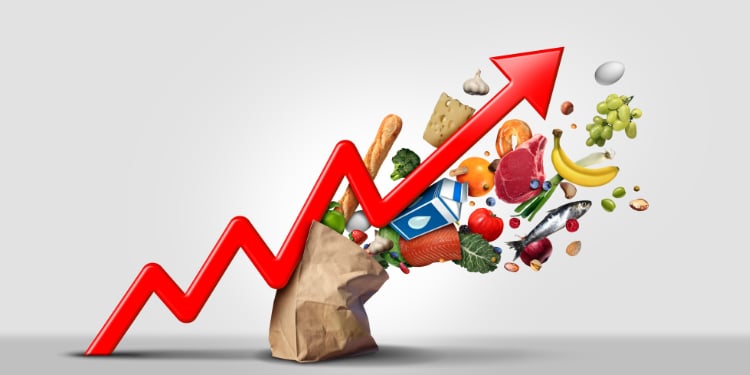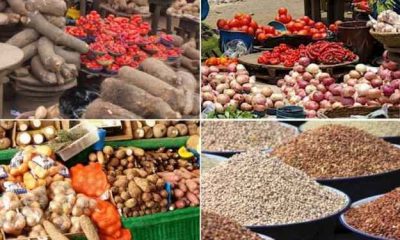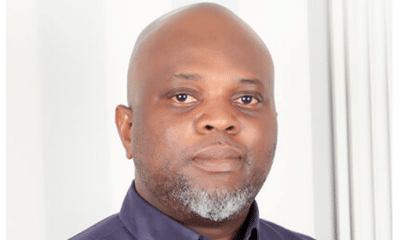Business
NBS Reveals How Inflation Pushed Nigerians’ Consumption Expenditure To N57.08tn

The National Bureau of Statistics (NBS) has revealed how the continuous surge in inflation has caused the nation’s consumption expenditure to rise to N57.08 trillion in the first half of 2022.
According to the NBS, the figure indicates that Nigeria’s consumption expenditure rose by about eight trillion naira or 14.39 % as compared to the corresponding period of 2021.
Naija News understands that the figures were contained in the NBS’s ‘Nigerian Gross Domestic Product report (Expenditure and Income Approach)’.
The NBS’s definition of household final consumption expenditure as spending, including “imputed expenditure, incurred by resident households on individual consumption goods and services. This is calculated as a residual.”
The reports also showed that household final consumption grew by 6.94% and 17.64% on a year-on-year basis, in real terms in the first and second quarters of the year 2022 respectively.
The NBS furthered that following the rise in headline inflation since 2021, the growth rates have decreased compared to those of the corresponding quarters of 2021, which recorded 47.16% and 42.40% on a year-on-year basis, in real terms respectively.
It stated that since 2021, headline inflation rose from 16.47% in January 2021 to 18.60% in June 2022, and it rose to 18.60% in September 2022.
Recall that the NBS’s September inflation report revealed that there was a disruption in the supply of food products and an increase in import cost due to the persistent currency depreciation.
The September report also stated that the general increase in the cost of production was driving higher prices for goods and services.
However, Naija News also gathered that the NBS in the Nigerian Gross Domestic Product report (Expenditure and Income Approach) noted “The observed trend since 2020 indicates that real household consumption expenditure declined in Q1 and Q2 accounting for negative growth rates informed by the COVID-19 pandemic.
“However, positive growth rates were recorded in Q3 and Q4 of 2020 as well as the four quarters of 2021. As the economy recovers from the shock of the pandemic, Q1 and Q2 2022 growth rates have shown lower rates relative to the corresponding quarters of 2021.
“On a quarter-on-quarter basis, real household consumption expenditure grew by -8.50 per cent in Q1, and 2.32 per cent in Q2 2022. In nominal terms, household final consumption expenditure grew by 8.14 per cent in Q1, and 20.99 per cent in Q2 2022.”
The report pointed out that with the current indices, little was left for investments and others, as household consumption by Nigerians accounted for 76.79% of real GDP at market prices in the first quarter of 2022, and 78.99% in the second quarter of the year.
The Organisation for Economic Co-operation and Development, also disclosed that household expenditure made by Nigerians to meet their everyday needs such as food, clothing, housing (rent), energy, transport, durable goods, health costs, leisure, and miscellaneous services accounts for the amount of final consumption expenditure.
The body also noted that it was about 60 per cent of GDP and was an essential variable for economic analysis of demand.












